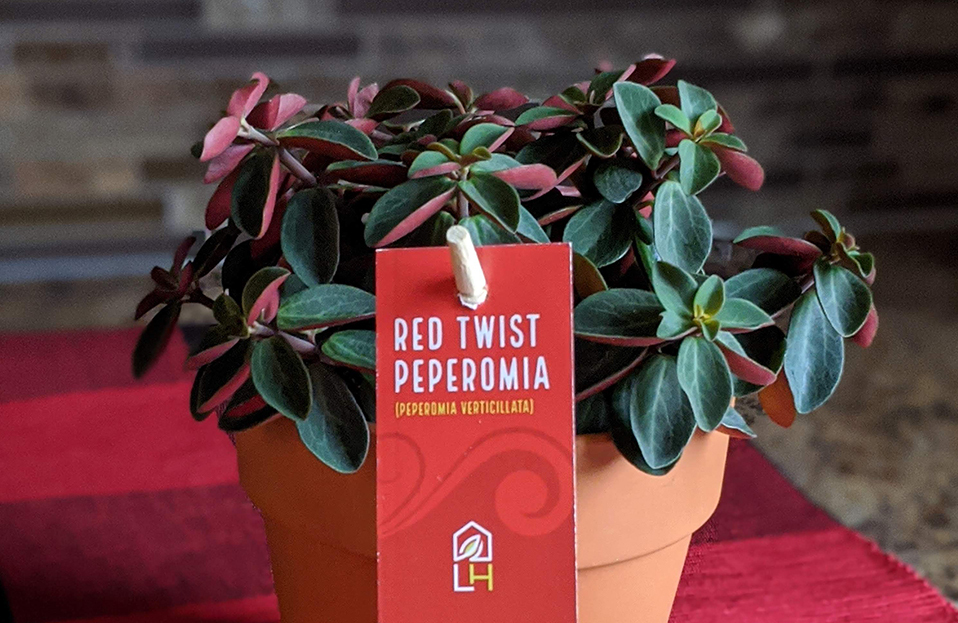
Red Twist Peperomia (aka “Red log”) is a newer hybrid cultivar of Peperomia verticillata first discovered in 2014.
What makes this hybrid unique from other cultivars is its leaves that are dark green on the upper surface and red on the lower surface, and its upright habit and strong stems.
The “twist” in its name comes from the pattern of its leaves, which form a helix or whorl pattern while twisting down the stem.
Red twist is known for being a fast grower that is relatively hardy and easy to maintain.
At Living House we grow our Red Twist sustainably in our greenhouse from cuttings, but originally these plants are native to the rainforests of Bolivia.
Did you know? There are over 1,000 known species of plants in the peperomia genus! Most are known for having thick, fleshy leaves; however, they can vary wildly in colour and appearance.
Read on for more detailed care information!
Red Twist Peperomia are distinguished by their unique, bicolour leaves that are emerald green on top and bright crimson underneath.
Repot annually using a well-draining, loamy soil mix with medium moisture retention.
These plants are fast growers and will require regular pruning if you want to maintain a compact, bushy appearance, otherwise they will get quite “leggy.” Using a sharp, sterile knife, scissors or pruning snips, trim the top leaves above the node.
You may want to rotate your Red Twist weekly or whenever you water it to keep a balanced appearance, because the stems will bend towards the light.
Overwatering is the #1 peperomia killer. Like other peperomias, the Red Twist likes to hold moisture in its leaves, which makes it semi-drought tolerant. If the plant is overwatered it can rupture the cell walls of the leaves or cause root rot. A sign that a plant has been overwatered is leaves that are turning black and dropping. When in doubt, it’s better to underwater than overwater.
Happy planting!